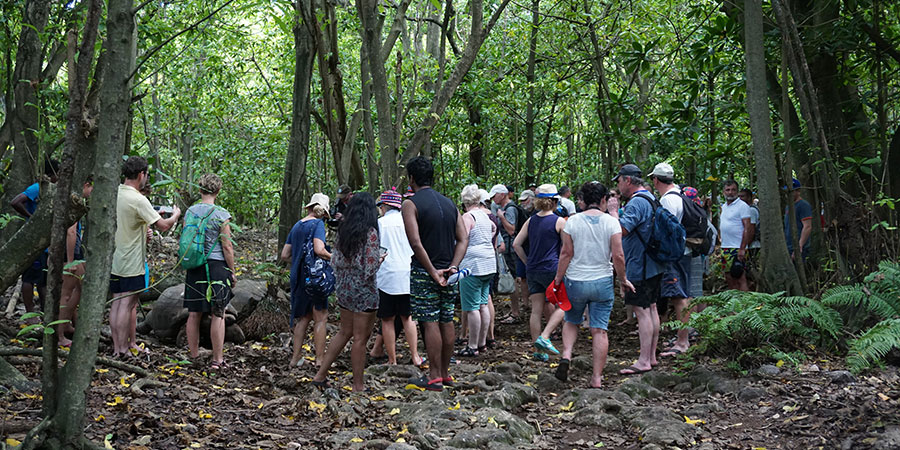
Today is International Day for Biological Diversity as named by the United Nations, in order to elevate biodiversity-related issues with this year’s theme as ‘biodiversity and sustainable tourism’.
“Cousin Island has the longest running ecotourism program in the Seychelles, so for us such a day is important in underscoring not only our conservation work but also the ongoing sustainable tourism on the island,” says Dr Nirmal Shah, Nature Seychelles’ Chief Executive.
“After we took over the management of Cousin from BirdLife International, we worked at aligning our ecotourism program to international standards, which we continue to maintain.”
Cousin Island was transformed from an ecologically impoverished coconut plantation into a thriving indigenous forest, at first with the sole aim of saving the then critically endangered Seychelles Warbler, the only population of just 24 individuals found on this tiny Island. Now the island has diverse and abundant wildlife close at hand.
Thousands of visitors from around the world visit this unique island to see nesting seabirds, foraging land birds in the forest, lizards roaming about in the leaf litter in search of food, and a host of invertebrates such as crabs, spiders, millipedes and termites. It is also one of the most important nesting sites for the endangered Hawksbill Turtle in the Western Indian Ocean Region.

As a nature reserve, Cousin Island is IUCN Protected Area Category 1a, which means that when tourists visit, their impacts are strictly controlled to ensure protection of the conservation values.
“We have published guidelines for those visiting the island to ensure that no wildlife is disturbed or taken away from the island. These are available to tour operators before they bring their clients to the island, on our websites as well as on display in the two authorised landing areas of the island,” Shah explains.
“Conservation comes first on Cousin. In as much as we value the landing fees which are re-invested in the running of the island, we do not for instance allow visitors to tour the island without one of our wardens. We have for the same reason also restricted the times for visitors from Monday to Friday between 10 in the morning and noon.”
Most visitors fly from Europe and reach the island by boat which has a high environmental impact. In 2009 Nature Seychelles started working towards reducing their carbon footprint by purchasing high quality carbon credits from accredited international projects, making Cousin Island the first Carbon neutral nature reserve in the world.

